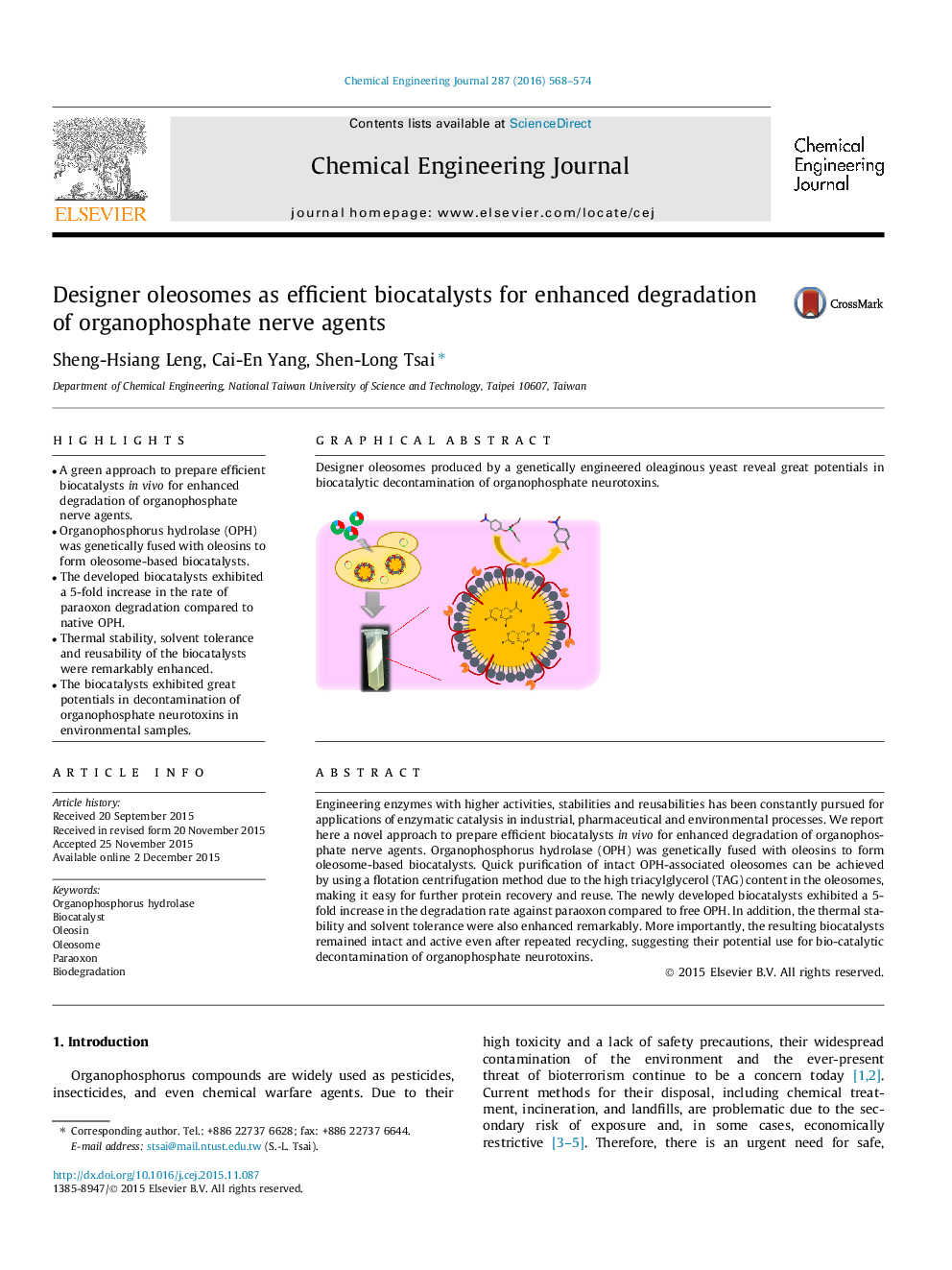| Article ID | Journal | Published Year | Pages | File Type |
|---|---|---|---|---|
| 145908 | Chemical Engineering Journal | 2016 | 7 Pages |
•A green approach to prepare efficient biocatalysts in vivo for enhanced degradation of organophosphate nerve agents.•Organophosphorus hydrolase (OPH) was genetically fused with oleosins to form oleosome-based biocatalysts.•The developed biocatalysts exhibited a 5-fold increase in the rate of paraoxon degradation compared to native OPH.•Thermal stability, solvent tolerance and reusability of the biocatalysts were remarkably enhanced.•The biocatalysts exhibited great potentials in decontamination of organophosphate neurotoxins in environmental samples.
Engineering enzymes with higher activities, stabilities and reusabilities has been constantly pursued for applications of enzymatic catalysis in industrial, pharmaceutical and environmental processes. We report here a novel approach to prepare efficient biocatalysts in vivo for enhanced degradation of organophosphate nerve agents. Organophosphorus hydrolase (OPH) was genetically fused with oleosins to form oleosome-based biocatalysts. Quick purification of intact OPH-associated oleosomes can be achieved by using a flotation centrifugation method due to the high triacylglycerol (TAG) content in the oleosomes, making it easy for further protein recovery and reuse. The newly developed biocatalysts exhibited a 5-fold increase in the degradation rate against paraoxon compared to free OPH. In addition, the thermal stability and solvent tolerance were also enhanced remarkably. More importantly, the resulting biocatalysts remained intact and active even after repeated recycling, suggesting their potential use for bio-catalytic decontamination of organophosphate neurotoxins.
Graphical abstractDesigner oleosomes produced by a genetically engineered oleaginous yeast reveal great potentials in biocatalytic decontamination of organophosphate neurotoxins.Figure optionsDownload full-size imageDownload as PowerPoint slide
